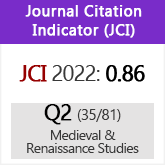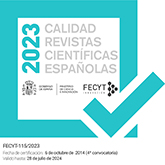El acceso al gobierno de las ciudades castellanas con voto en Cortes a través del patronazgo regio durante el siglo XV
DOI:
https://doi.org/10.3989/aem.2002.v32.i2.255Keywords:
Castile, fifteenth century, towns, urban government, urban oligarchiesAbstract
The author proves that the most influential group in the government of the Castilian towns during the fifteenth century, and most of all in the seventeen towns that had the right to send deputies to Parliament (Cortes), was constituted by individuals that worked at the service of the king in the main organs of central and territorial government and administration of the kingdom. He gives account of the institutional mechanism that propitiated this situation, and he stresses the significance of the creation by the king of new offices of "regidores" (aldermen). He also proves that the most influential families of this group of king's servants accumulated posts of "regidores" (aldermen) in several towns, and contributed in this way to reinforce the political links that these towns established with each other and with the monarchy.
Downloads
Download data is not yet available.
Downloads
Published
2002-12-30
How to Cite
Diago Hernando, M. (2002). El acceso al gobierno de las ciudades castellanas con voto en Cortes a través del patronazgo regio durante el siglo XV. Anuario De Estudios Medievales, 32(2), 879–913. https://doi.org/10.3989/aem.2002.v32.i2.255
Issue
Section
Monographies
License
Copyright (c) 2002 Consejo Superior de Investigaciones Científicas (CSIC)

This work is licensed under a Creative Commons Attribution 4.0 International License.
© CSIC. Manuscripts published in both the printed and online versions of this Journal are the property of Consejo Superior de Investigaciones Científicas, and quoting this source is a requirement for any partial or full reproduction.All contents of this electronic edition, except where otherwise noted, are distributed under a “Creative Commons Attribution 4.0 International” (CC BY 4.0) License. You may read here the basic information and the legal text of the license. The indication of the CC BY 4.0 License must be expressly stated in this way when necessary.
Self-archiving in repositories, personal webpages or similar, of any version other than the published by the Editor, is not allowed.














